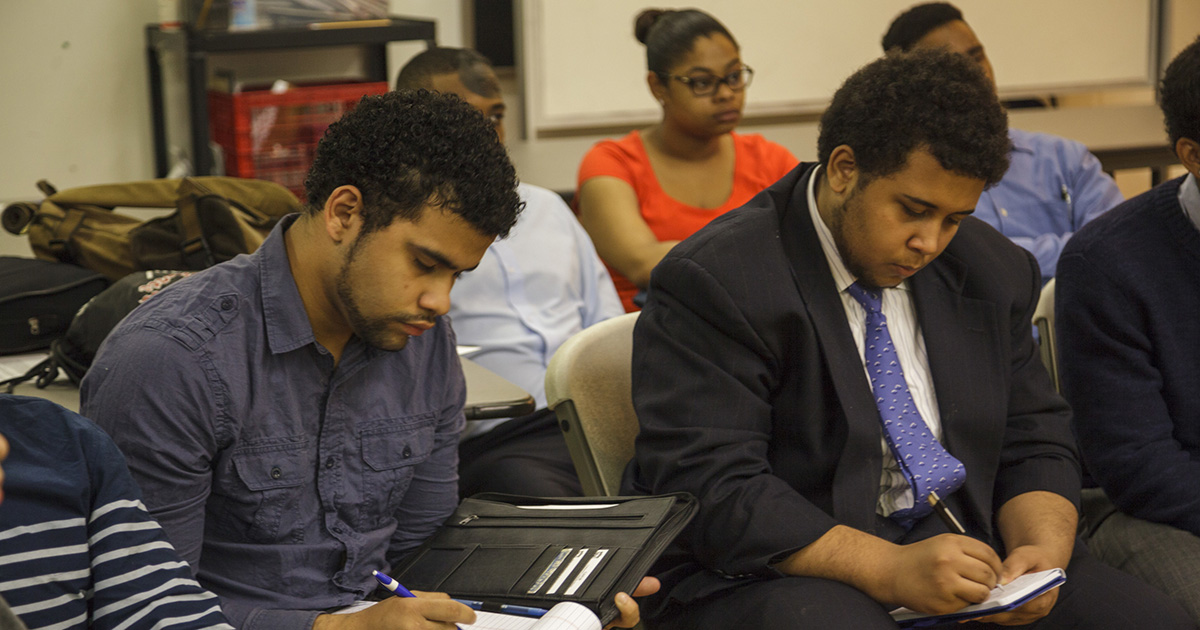Engaging Disconnected Young People in Education and Work
Findings from the Project Rise Implementation Evaluation

Educational attainment and early work experience provide a crucial foundation for future success. However, many young adults are disconnected from both school and the job market. Neglecting these young people can exact a heavy toll on not only the individuals but also society as a whole, for example, through lost productivity and tax contributions, increased dependence on public assistance, and higher rates of criminal activity.
Project Rise served 18- to 24-year-olds who lacked a high school diploma or the equivalent and had been out of school, out of work, and not in any type of education or training program for at least six months. After enrolling as part of a group (or cohort) of 25 to 30 young people, Project Rise participants were to engage in a 12-month sequence of activities centered on case management, classroom education focused mostly on preparation for a high school equivalency certificate, and a paid part-time internship that was conditional on adequate attendance in the educational component. After the internship, participants were expected to enter unsubsidized employment, postsecondary education, or both. The program was operated by three organizations in New York City; one in Newark, New Jersey; and one in Kansas City, Missouri.
The Project Rise program operations and evaluation were funded through the federal Social Innovation Fund (SIF), a public-private partnership administered by the Corporation for National and Community Service. The Mayor’s Fund to Advance New York City and the New York City Center for Economic Opportunity led this SIF project in collaboration with MDRC.
Key Findings
This report describes how the Project Rise program operated at each local provider, including the extent to which the participants were engaged and achieved desired outcomes.
-
Participants were attracted to Project Rise more by the education component than by the internship opportunity.
-
More than 91 percent of program enrollees attended at least some high school equivalency preparation or, less commonly, high school classes. On average, those who attended class received almost 160 hours of instruction. About 72 percent of enrollees began internships; over half of the internship participants worked more than 120 hours.
-
Although participants received considerable case management and educational and internship programming, the instability in participants’ lives made it difficult to engage them continuously in the planned sequence of activities. Enrolling young people in cohorts with their peers, as well as support from case managers and other adult staff, seemed to help promote participant engagement. The education-conditioned internships appeared to have had a modest influence on encouraging engagement for some participants.
-
Within 12 months of enrolling in Project Rise, more than 25 percent of participants earned a high school equivalency credential or (much less commonly) a high school diploma; 45 percent of participants who entered with at least a ninth-grade reading level earned a credential or diploma. Further, about 25 percent entered unsubsidized employment in this timeframe.
- It may be important to consider intermediate (or perhaps nontraditional) outcome measures in programs for disconnected young people, since such measures may reflect progress that is not apparent when relying exclusively on more traditional ones.







